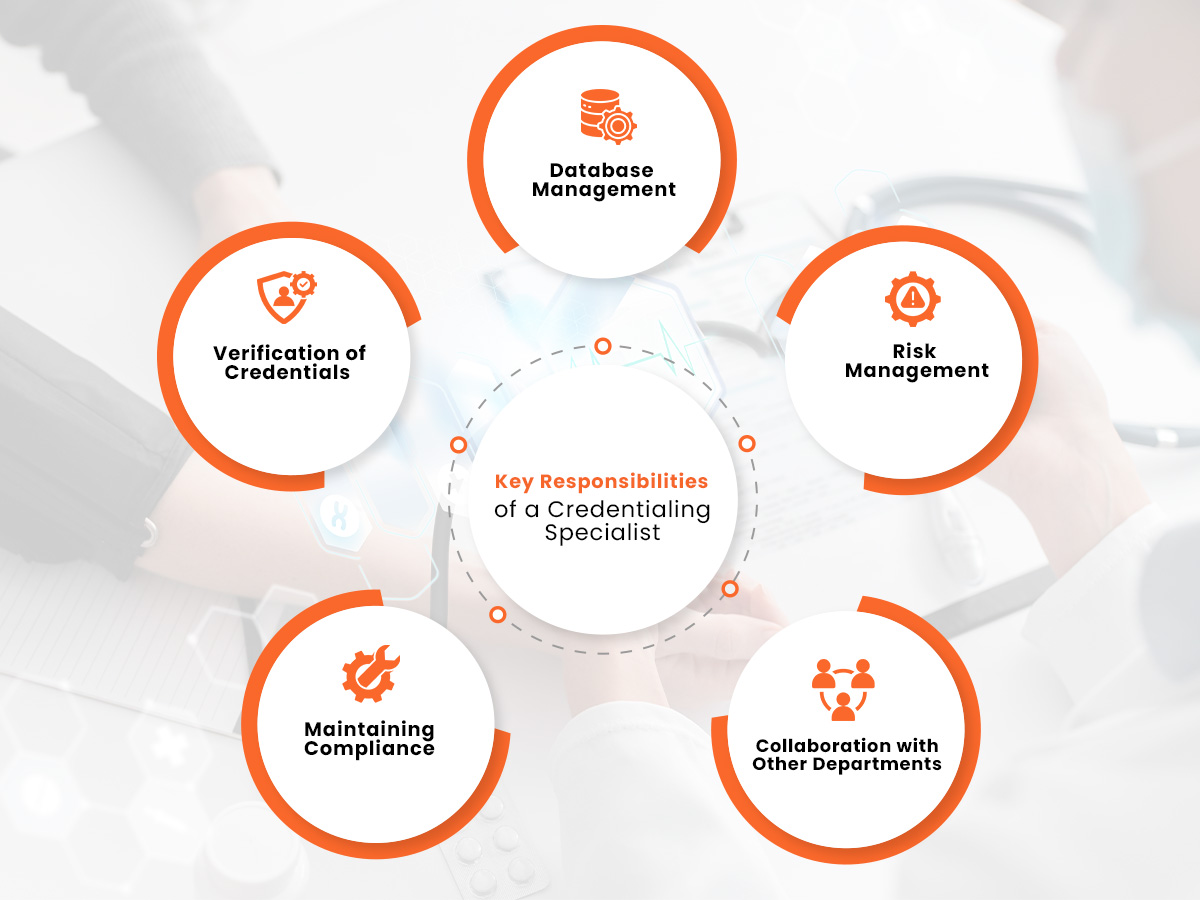In the complex world of healthcare, ensuring that healthcare professionals meet regulatory standards is paramount. Behind the scenes, a crucial role exists that ensures that only qualified professionals deliver patient care – the credentialing specialist. This role is essential in verifying qualifications, maintaining regulatory compliance, and, ultimately, supporting patient safety.
What is a Credentialing Specialist?
A credentialing specialist is a professional responsible for verifying the qualifications, licensing, and certifications of healthcare providers. They ensure that healthcare workers meet all necessary standards and are qualified to provide care. The role of credentialing specialists is particularly prominent in hospitals, medical practices, and healthcare organizations where compliance with government regulations and industry standards is critical.
Key Responsibilities of a Credentialing Specialist

Credentialing specialists perform several essential tasks to maintain high standards of care and compliance. Their responsibilities include:
- Verification of Credentials
The primary responsibility of a credentialing specialist is to verify the credentials of healthcare providers. This involves confirming that physicians, nurses, and other healthcare professionals have the necessary education, certifications, and licenses to practice. - Maintaining Compliance
Healthcare organizations must meet stringent federal, state, and local regulatory requirements. Credentialing specialists ensure compliance by regularly reviewing and updating credentialing processes. They make sure healthcare providers meet ongoing requirements and that the organization adheres to accreditation standards. - Database Management
Credentialing specialists maintain detailed records for each healthcare provider, including qualifications, certifications, and licenses. This data management is critical to keep track of upcoming license renewals, re-certifications, and any changes in provider status. - Risk Management
By ensuring that only qualified and properly credentialed providers are allowed to deliver care, credentialing specialists help healthcare organizations mitigate risks associated with unqualified staff, malpractice claims, and regulatory penalties. - Collaboration with Other Departments
Credentialing specialists often collaborate with human resources, compliance, and legal departments. Their role is integral to recruiting and onboarding new providers, as they ensure that all necessary credentials are verified before employment.
The Credentialing Process: Step-by-Step
A credentialing specialist follows a systematic approach to verify a provider’s qualifications. Here is an overview of the steps involved:
- Application Review
The credentialing process begins with an application from the healthcare provider, including details about education, experience, licenses, and certifications. - Primary Source Verification (PSV)
Credentialing specialists conduct primary source verification, which involves directly verifying the credentials with issuing bodies, such as medical schools, licensing boards, and certification agencies. - Background Checks
Credentialing often includes a criminal background check, malpractice history, and peer review to assess the provider’s professional reputation and suitability for the role. - Committee Review
Once all credentials are verified, the application is presented to a credentialing committee for review. This committee may include senior clinicians, administrators, and legal representatives who provide final approval. - Ongoing Monitoring and Re-credentialing
Credentialing doesn’t stop after initial verification. Specialists continuously monitor for changes in licensing, professional conduct, and certifications, performing re-credentialing at regular intervals to maintain compliance.
Importance of Credentialing Specialists in Healthcare
Credentialing specialists play a vital role in patient safety, compliance, and operational efficiency. Here’s why they are indispensable:
- Patient Safety
Credentialing specialists ensure that only qualified providers treat patients, reducing the risk of errors due to incompetence or lack of proper training. - Financial and Legal Protection
Proper credentialing minimizes the risk of costly legal issues and potential malpractice suits. It also ensures compliance with healthcare regulations, helping organizations avoid regulatory fines. - Operational Efficiency
Efficient credentialing processes improve the hiring and onboarding of new providers, helping organizations maintain adequate staffing levels and deliver high-quality patient care without delays.
Skills and Qualifications Needed to Become a Credentialing Specialist
To excel in credentialing, certain skills and qualifications are essential. These include:
- Attention to Detail
Credentialing specialists must meticulously review provider documents to ensure accuracy in verification processes. - Regulatory Knowledge
Familiarity with healthcare regulations, such as HIPAA, CMS, and Joint Commission standards, is crucial for maintaining compliance. - Analytical Skills
Credentialing involves data review and analysis to spot inconsistencies or issues in provider documentation. - Communication Skills
Credentialing specialists frequently communicate with providers, verification bodies, and other departments, requiring excellent interpersonal skills. - Organizational Skills
Managing records and credentialing timelines for multiple providers requires strong organizational abilities.
Career Path and Opportunities for Credentialing Specialists
The demand for credentialing specialists is growing as healthcare organizations prioritize compliance and risk management. Entry-level positions typically require a background in healthcare administration or a related field. Certifications such as the Certified Provider Credentialing Specialist (CPCS) from the National Association Medical Staff Services (NAMSS) can enhance career prospects, providing recognition and opening doors to advanced roles.
Final Thoughts
Credentialing specialists are a vital component of the healthcare industry, ensuring that only qualified professionals deliver patient care. They are the guardians of compliance, patient safety, and quality assurance. As healthcare continues to evolve, the role of credentialing specialists will remain crucial in upholding standards and supporting the efficient operation of healthcare organizations.


